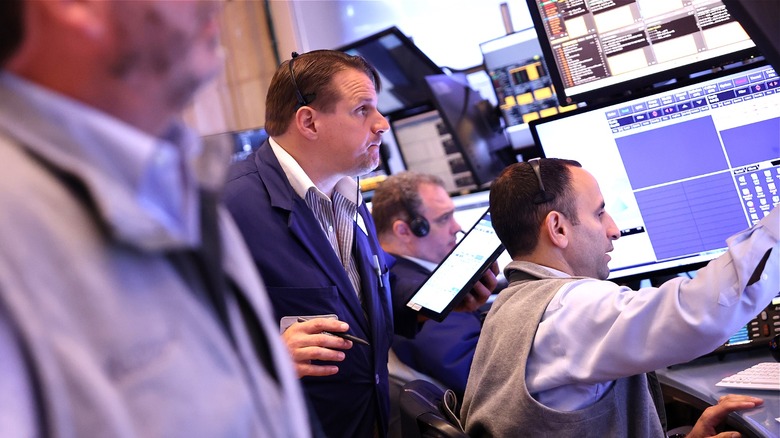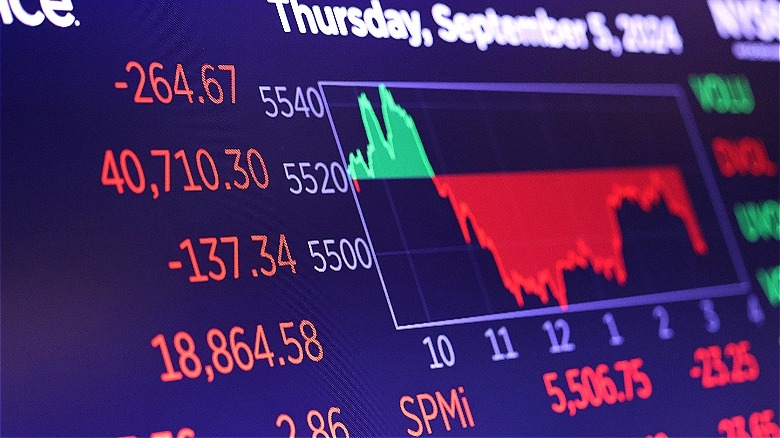Historically, How Does The Market Perform In September?
Historically, September has been the worst-performing month for the market. What does that mean exactly? It means the month is the only one with a negative average total return since tracking began in 1925 (-0.78%). However, to provide this with context, September has only been negative 49% of the time over those 98 years, according to Fisher Investments; meaning that the "worst" month for stocks is actually positive a majority of the time.
This said, when compared to other months, September hasn't performed as well. As Barron's notes, September is one of only three months with a down average dating back to 1994 (the other two being February and August). And it's the month's below-average performance for investors approximately half the time that's led to an anomaly known as the "September Effect." As an example, for the last four Septembers, from 2020 to 2023, the market has been down 4%, 5%, 9%, and 5%, respectively.
'Worst' month by comparison
But, even with the last four down years for September, the month's historic average is -0.78%, and that can tell us about how well it's done in other years. Keep in mind, too, that September's average includes historically bad market events, including September 15, 2008, when Lehman Brothers filed for bankruptcy, and the Dow Jones Industrial Average fell 504.48 points (4.4%); the S&P 500 4.7%; and the Nasdaq composite 3.6%. What's more, according to CNBC, the last time the Dow lost more than 500 points in a day prior to 2008, it was another September: September 17, 2001. Of course, its average also includes September 1931 when the market fell by 29.6%. (Here's what happens when the market crashes.)
Another factor in September's market performance, though, could be its history. As Jason Brown, president at Alexis Investment Partners, an investment advisory firm in Montgomery, Texas, told Reuters, "Everybody is reporting about how September is such a horrible month and that tends to feed on itself." In other words, it becomes a self-fulfilling prophecy for investors, as their actions only further what's become September's seasonality. (On that note, check out tips for investing in stocks as a beginner.)
More theories to explain September
As for why September is historically the worst month for equities, there isn't one explanation. But, there are some theories, including a return from summer and a subsequent increase in selling volume. Michael Aaron, SPDR chief strategist at State Street Global Advisors in Boston, called (via Reuters) the market's performance on September 3, 2024, when the Dow fell by 600 points to open the month, a "bit of a cliché." Said Aaron, "Everyone is returning from summer holidays, volumes are picking up, and performance has been good entering what historically has been a seasonally weak period."
In addition to the last four years of down Septembers, Aaron noted the month has been down six times over the past decade. Jason Browne, meanwhile, told Barron's that many investors might also view September as they do in reaction to past bad experiences. A recent example being September 30, 2022, when the Dow fell by 1.7%, losing 500.10 points on the day; for the month, the market experienced a 9.3% drop.
Other theories include people selling stocks during September to pay for school-related expenses (like tuition), and tax-loss harvesting of mutual funds and ETFs, which must be done by October 31 (when their fiscal year ends). (Speaking of ETFs, here's what you should know before investing.)


